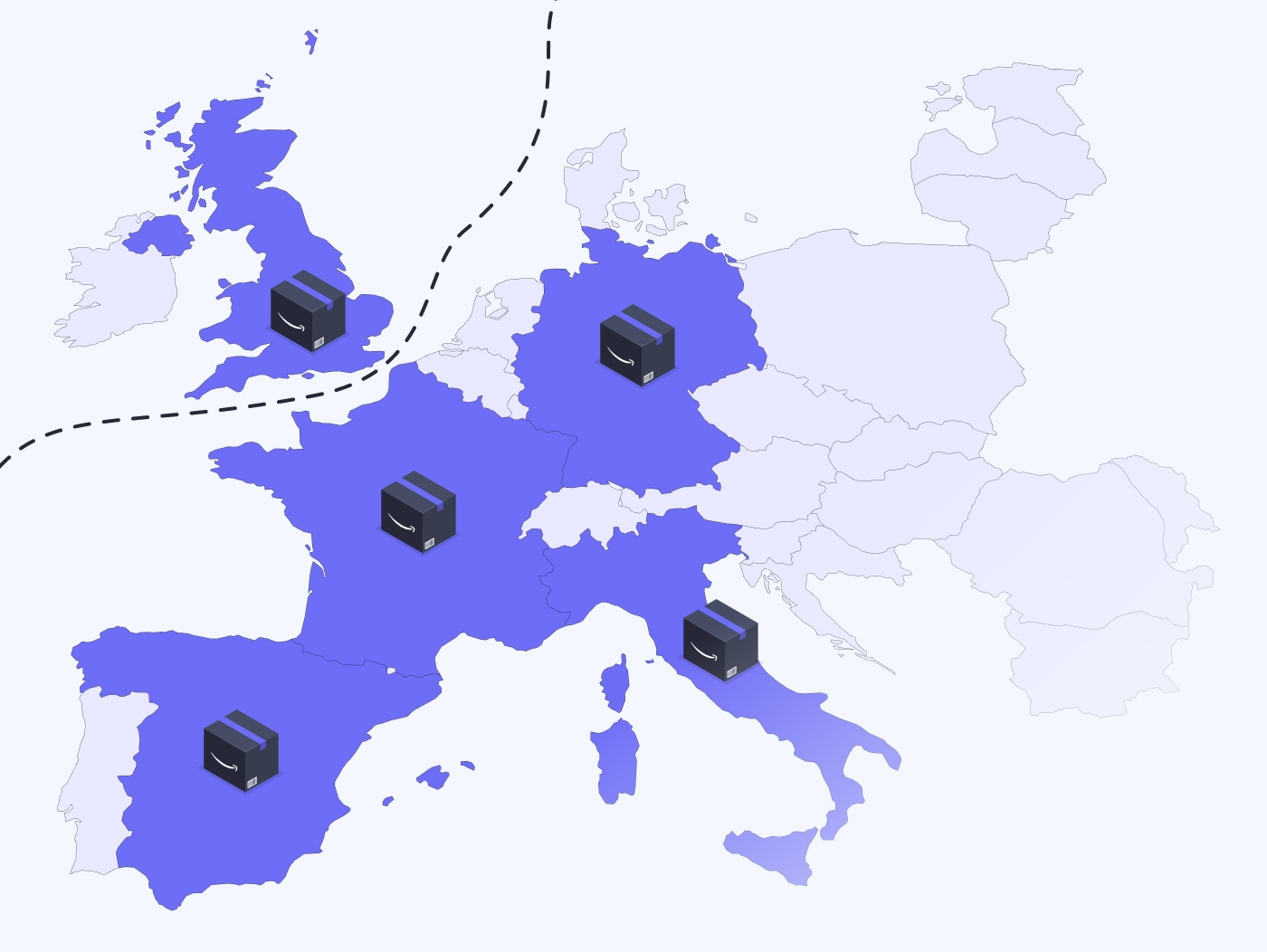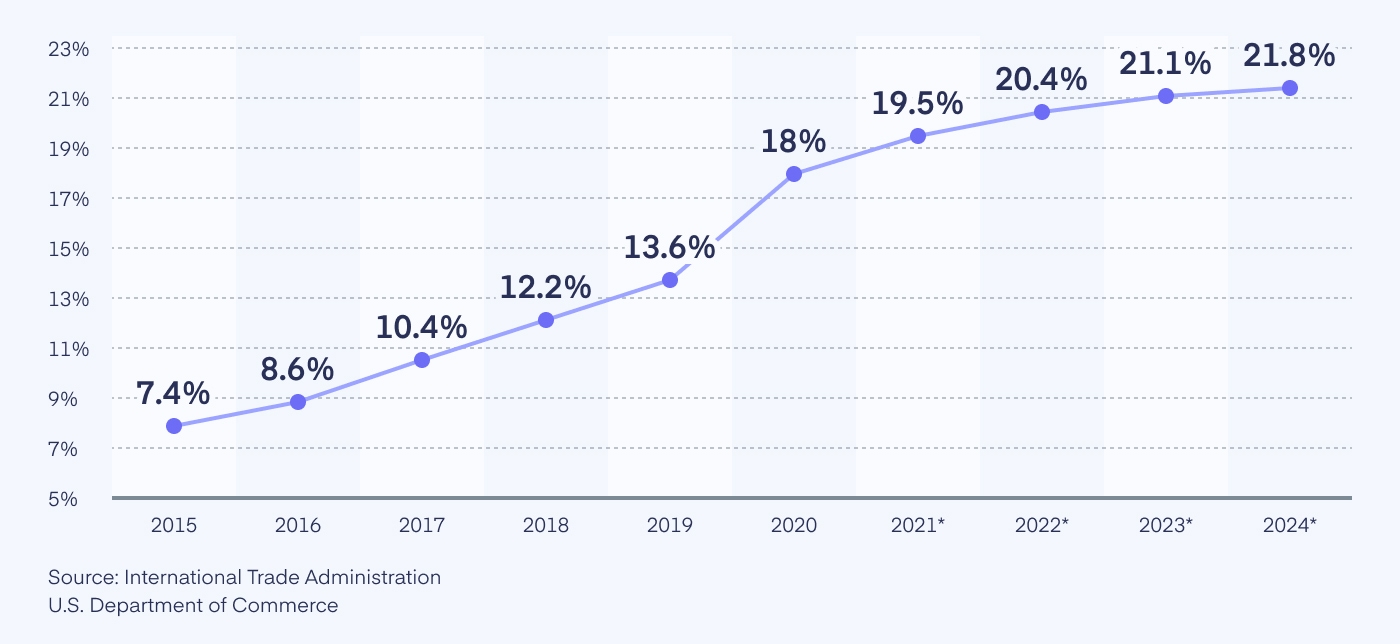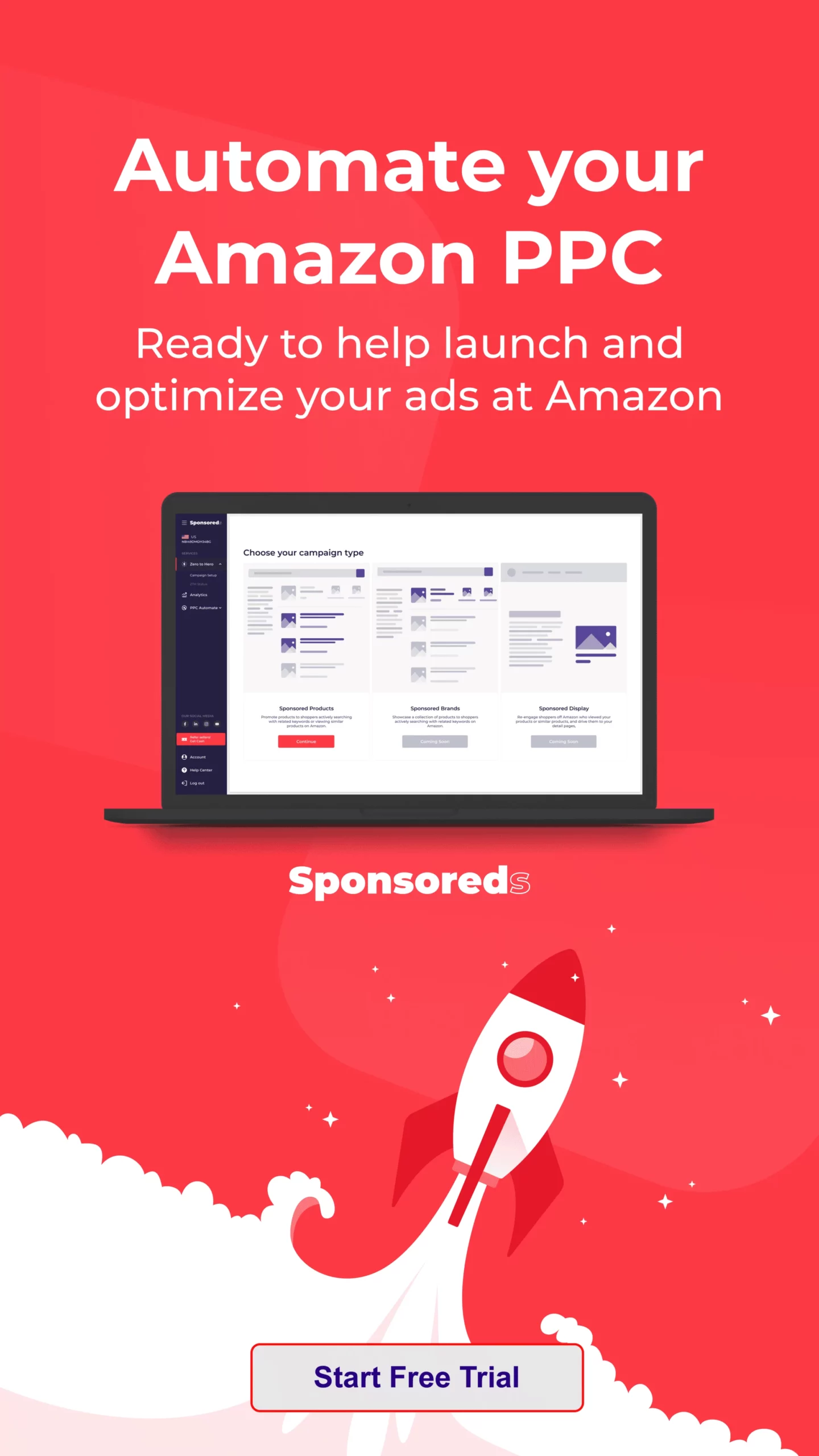2020 and 2021 can be widely characterized as market disruption years. Brexit, COVID-19, lockdowns, surged shipping costs, trade bottlenecks and structural adjustments such as the EU One Stop Shop are only but a few to mention in the myriad of the challenges e-commerce sellers had to face.
This article aims to outline in short the various events that occurred over the past two years in conjunction with the e-commerce world, primarily for sellers trading in the European continent. This article also briefly lists lessons learnt and offers an outlook on how 2022 is likely to unfold.
Where did it all start?
On 31st December 2020, the UK left the European Union. By withdrawing from the EU, European and non-European e-commerce sellers were faced with a new reality and two critical questions to deal with:
- How can I continue trading in Europe from the UK and vice versa?
- How can I reach my client base on both sides of the Channel, and how can I manage my stock?
Brexit brought structural disruption in the day-to-day operations of the e-commerce trade. Stock transfers were not to be processed anymore from the UK.
This shows the Amazon PAN-EU FBA programme is focused on a “6+1” country status onwards; at the same time, EFN was only to be available in the EU countries. E-commerce sellers had to make critical decisions regarding their
- stock volumes,
- stock movements,
- shipping routines and
- sales expectations.
Despite the temporary disruption, there were a few options that were made available in Q1 of 2021. A plethora of new terminology stormed into each seller’s day-to-day vocabulary, such as indirect representation, customs clearance and deferral schemes, postponed VAT accounting,
Article 23 and reverse charge options. Despite being in the midst of this pandemonium, sellers, along with their shippers and VAT Advisors, managed to transition into this new reality.
Enter COVID-19
Whilst Brexit was already a fait accompli on the Continent, in early 2020, something new was about to shake up the whole world, then known coronavirus now COVID-19. The global COVID-19 pandemic started spreading across the globe. The resulting series of lockdowns offered unprecedented challenges and opportunities for all online entrepreneurs.
On the one hand, those e-commerce entrepreneurs who were able to seize that opportunity and pivot swiftly in terms of product supplies and fast turnaround saw skyrocketed sales, high profitability and exposure for their brand. For some, their brands were even acquired by brand accumulators or otherwise more widely mentioned Aggregators.
But, on the other hand, e-commerce entrepreneurs with scarce resources and limited supply lines had to consolidate operations so that the “immediate periphery” of their businesses was secured in search of a (shipping) plan B and with the view of another chance to expand in future.
July 2021 and the EU One Stop Shop rules
2021 was equally not short of adjustments that e-commerce sellers had to adapt to. On top of Brexit and COVID-19, more structural adjustments were introduced in the e-commerce market.
From July 2021, the EU One Stop Shop rules were introduced, placing more responsibility on Marketplaces, audit duties on sellers by maintaining VAT registrations and filings and re-purposing of intra-EU B2C and B2B transactions. Moreover, shipping costs increased dramatically yet stabilized and slowly normalized in Q3.
Lessons learnt
The years 2020 and 2021 have taught us 3 main lessons:
- E-commerce sellers should be proud of their achievements so far, as striving in such a volatile market space can be an achievement on its own – for every entrepreneur.
- In volatile times there are not only challenges but also major opportunities. As disruption brings change, pivoting alongside transition keeps everyone alert and builds resilience for similar future occurrences.
- Having the support of a resourceful network of experts and service providers can be life-saving for your business – having a Plan B mitigates disruption, which shields your business from external (market) pressures.
The overall outlook of 2022 seems promising on most levels. Shipping routines and customs processes have been routinised across the Channel post-Brexit. Shipping costs have stabilized and show a downward trend; although in early 2021, we experienced shipping costs being quadrupled, rates have now been reduced by at least 20% from this early time frame.
Cross-Channel operations have been normalized since trading routes via The Netherlands and France to the UK and vice versa have been re-established, resulting in a stable flow of goods in an upward trend.
In addition to this, from the 1st January 2022, France has introduced the obligatory reverse deferral scheme, which allows sellers to declare on paper their import VAT clearances and process their import VAT requirements electronically.
This practically means that sellers will no longer have to pay import VAT to the shipping providers in advance but instead via the monthly VAT reporting, provided that the correct customs clearance procedures have been followed through (EORI number and referred scheme number). In short, the waiting time to receive a refund from the Tax Authorities is over (previously, it would normally take up to 6 months).
Such measures positively affect a business’s cash flow point of view. Sellers can channel their financial resources to other activities such as buying more stock or boosting their online presence by saving those funds. This is coupled up with the UK’s Postponed VAT Accounting scheme, which offers similar benefits to cross-border entrepreneurs.
Furthermore, the recently launched Amazon Transportation Service (ATS) is heading in the same direction. This new programme is aimed to overcome cross-border trading paralysis and reinvigorate seamless movement of goods across the UK/EU border.
Given the above, the UK is to be reconnected with the European continent from a trading point of view via its re-introduction to the Amazon PAN-EU FBA Programme and the European Fulfillment Network.
Between March and May 2022, the EFN programme will mean that inventory will be available across both sides of the Channel (where applicable) once more, and the UK can once again be the gateway to Europe. EFN between the UK and the EU allows FBA sellers to store stock in the UK for fulfillment to EU customers. It also allows FBA sellers to store stock in the EU for fulfillment to UK customers. This has not been possible since Brexit.
Moreover, the Amazon PAN-EU FBA Programme can only grow larger with this development. By adding the UK in the whole programme as an integral part, this system of cross-border fulfillment warehousing coupled with Prime and proximity to local and cross-border customers can boost brand exposure, traffic and customer loyalty.
Final Word
After a couple of merciless years of change, transition and disruption, the trading outlook in Europe seems promising. With new schemes aimed at re-establishing cross-border trade between the UK and Europe and introducing structural adjustments to mitigate disruption, expansion into the EU and UK markets should be the top priority of any e-commerce entrepreneur.
Whilst looking to grow and expand your e-commerce business into new marketplaces, a support network of experts and specialists can assist e-commerce entrepreneurs in mitigating any upcoming risks of cross-border trading, keeping you compliant with changing legislation (not only VAT but also OSS/IOSS, EPR requirements and customs procedures) and grow and expand into new marketplaces.
About the Author
As the Professional Services Director of AVASK, Dr Angelos Katsaris has created a culture in which sees itself as a component piece of its clients rather than a distinct separate entity. At the same time, he believes one of his core missions is to unlock the potential of budding entrepreneurs. Angelos believes strongly that overseas expansion can be challenging, but when the administrative burden is lifted off an entrepreneur’s shoulders, life does become a bit easier.







